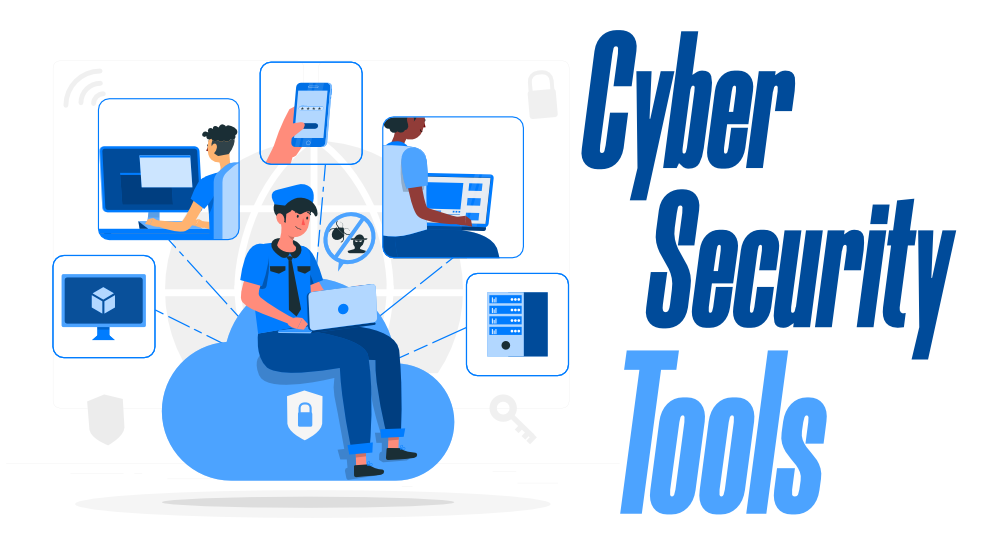
Cybersecurity plays an important role in business as it protects sensitive data, ensures business continuity, and protects against financial loss and reputational damage. Kali Linux and Burp Suite are two robust tools that can be utilized by managed IT services to enhance cybersecurity. Here’s how they can contribute to fortifying security measures:
Kali Linux: Kali Linux is a well-known open-source platform for penetration testing that includes numerous tools and utilities specifically designed for ethical hacking and security testing. managed service providers can utilize Kali Linux in the following ways:
- Vulnerability Assessment: Kali Linux offers a wide array of tools for identifying vulnerabilities in networks, systems, and applications. Managed service providers can conduct thorough vulnerability assessments to proactively pinpoint weaknesses and security flaws that could be exploited by malicious individuals.
- Penetration Testing: Kali Linux is extensively employed for conducting penetration testing or “pen testing.” It enables managed service providers to simulate real-world cyber attacks in order to identify potential entry points and security weaknesses in their clients’ systems. By conducting controlled and authorized tests, vulnerabilities can be discovered and addressed before malicious individuals can exploit them.
- Security Auditing: Kali Linux provides tools for examining and evaluating the security configuration of different systems and applications. Managed service providers can employ these tools to assess the efficiency of security controls, detect misconfigurations, and ensure compliance with best practices.
- Forensics and Incident Response: In the event of a security breach or incident, Kali Linux offers tools for analyzing digital evidence, examining logs, and recovering data. Managed service providers can make use of these capabilities to investigate security incidents, collect evidence, and determine the scope of the compromise. This information can then be used to address the incident and enhance security measures to prevent future occurrences.
Burp Suite: Burp Suite is a robust web application security testing tool that aids in identifying and resolving vulnerabilities in web applications. Managed service providers can utilize Burp Suite in the following manners:
- Web Application Security Testing: Burp Suite offers an all-inclusive range of instruments for examining the security of online applications. It has the capability to detect prevalent weaknesses, like SQL infiltrations, cross-site scripting (XSS), and insecure direct object references. Managed service providers can utilize Burp Suite to conduct meticulous security evaluations of online applications, pinpoint vulnerabilities, and propose suitable corrective actions.
- Session Hijacking and Authentication Testing: Burp Suite provides functionalities that enable managed service providers to evaluate session management and authentication mechanisms in web applications. It can assist in uncovering flaws in session handling, password policies, and authentication protocols, empowering providers to fortify these aspects and mitigate potential security hazards.
- Reporting and Documentation: Burp Suite generates comprehensive reports that record the discoveries and suggestions derived from security testing. These reports can be shared with clients or internal stakeholders to facilitate effective communication regarding security risks and the recommended actions for rectification.
By utilizing Kali Linux and Burp Suite, the entity offering managed IT services can conduct meticulous security assessments, identify vulnerabilities, and implement efficient security measures to enhance the cybersecurity stance of their clients. These tools offer specialized capabilities that enable proactive testing, identification, and rectification of potential security vulnerabilities, thereby bolstering overall security defenses.
In summary, Organizations must prioritize enhanced cybersecurity measures to protect against growing threats, secure cloud and IoT environments, address zero-day vulnerabilities, ensure compliance with data privacy regulations, and establish strong incident response and network resilience. By adopting advanced cybersecurity practices, organizations can effectively mitigate risk and protect their operations, assets, and stakeholders. It is also important for managed IT service providers to understand AI-powered tools. AI possesses the capacity to transform cybersecurity by enhancing human abilities, enhancing the identification of threats, automating the response to incidents, and offering more sophisticated analysis. As AI technology progresses, it will have a progressively important function in fortifying cybersecurity defenses and empowering organizations to stay ahead of rapidly changing cyber risks.



Recent Comments